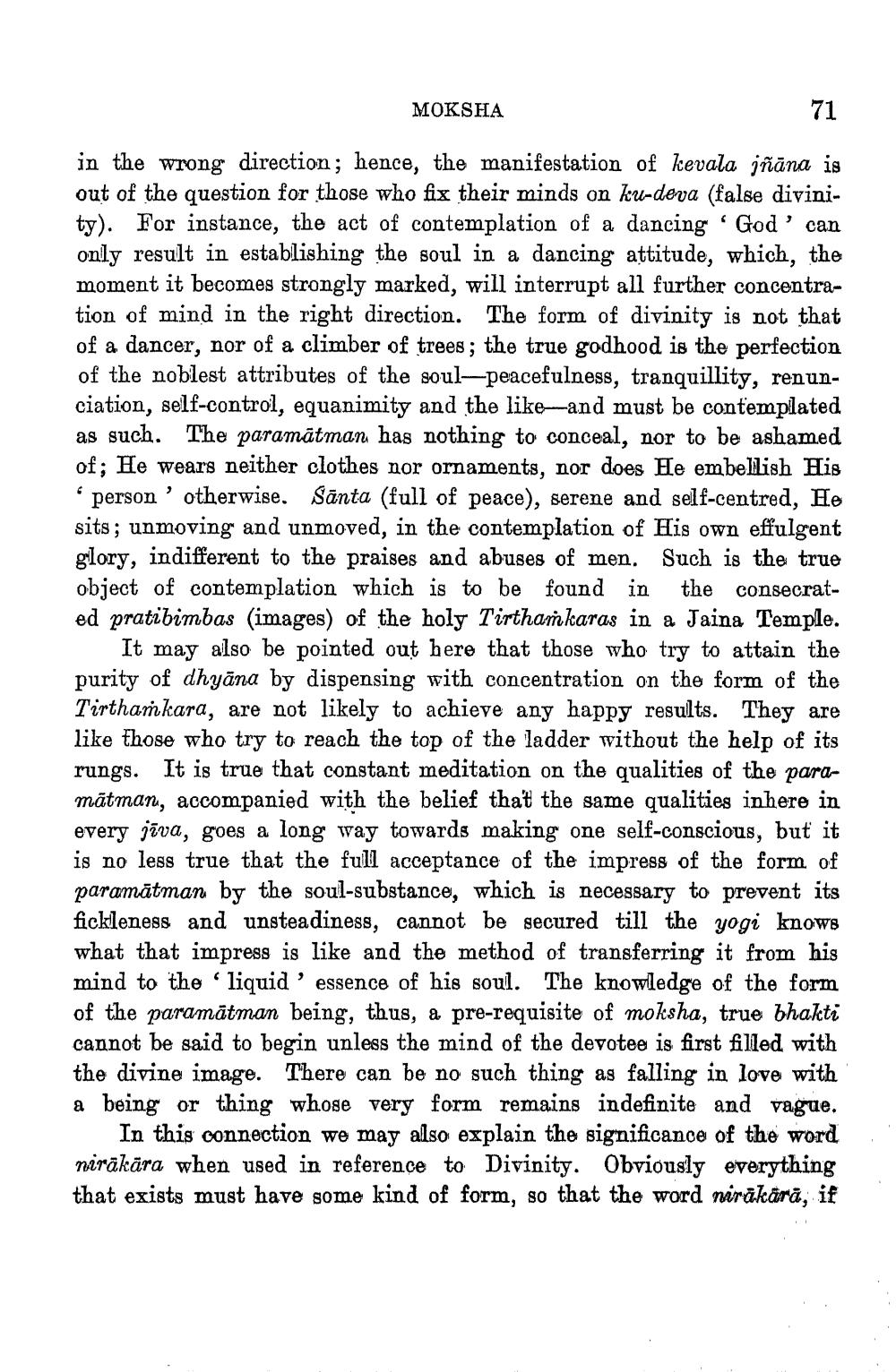________________
MOKSHA
71
in the wrong direction; hence, the manifestation of kevala jñāna is out of the question for those who fix their minds on ku-deva (false divinity). For instance, the act of contemplation of a dancing God' can only result in establishing the soul in a dancing attitude, which, the moment it becomes strongly marked, will interrupt all further concentration of mind in the right direction. The form of divinity is not that of a dancer, nor of a climber of trees; the true godhood is the perfection of the noblest attributes of the soul-peacefulness, tranquillity, renunciation, self-control, equanimity and the like--and must be contemplated as such. The paramātman has nothing to conceal, nor to be ashamed of; He wears neither clothes nor ornaments, nor does He embellish His
person' otherwise. Sānta (full of peace), serene and self-centred, He sits; unmoving and unmoved, in the contemplation of His own effulgent glory, indifferent to the praises and abuses of men. Such is the true object of contemplation which is to be found in the consecrated pratibimbas (images) of the holy Tirthamkaras in a Jaina Temple.
It may also be pointed out here that those who try to attain the purity of dhyāna by dispensing with concentration on the form of the Tirthamkara, are not likely to achieve any happy results. They are like those who try to reach the top of the ladder without the help of its rungs. It is true that constant meditation on the qualities of the paramātman, accompanied with the belief that the same qualities inhere in every jīva, goes a long way towards making one self-conscious, but it is no less true that the full acceptance of the impress of the form of paramātman by the soul-substance, which is necessary to prevent its fickleness and unsteadiness, cannot be secured till the yogi knows what that impress is like and the method of transferring it from his mind to the liquid'essence of his soul. The knowledge of the form of the paramātman being, thus, a pre-requisite of moksha, true bhakti cannot be said to begin unless the mind of the devotee is first filled with the divine image. There can be no such thing as falling in love with a being or thing whose very form remains indefinite and vague.
In this connection we may also explain the significance of the word nirākāra when used in reference to Divinity. Obviously everything that exists must have some kind of form, so that the word nirākārā, if




